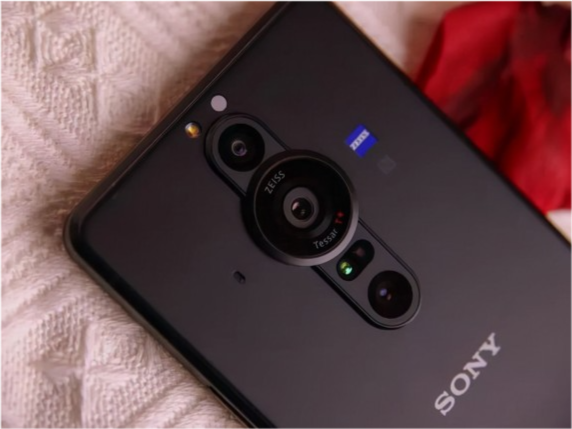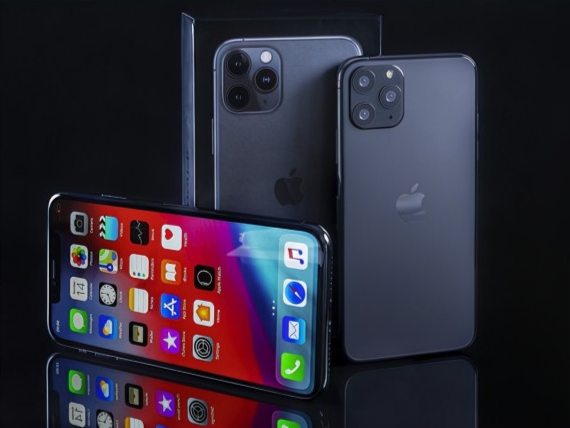As a technology powerhouse, why is Japan “below” in the smartphone race?
- Tram Ho
Japan’s smartphone industry currently accounts for a very modest share of the global smartphone market. In fact, there are many mobile phone manufacturing companies in Japan such as Sony and Sharp. However, manufacturing phones is still not the dominant area of these two popular brands.
Even in the domestic market, the most popular mobile phone brand is Apple. Huawei is also a brand that is becoming increasingly popular in Japan. So why does a technology powerhouse like Japan let itself be “underdog” in the smartphone race like that?
Sina site has based on the analysis of some technology experts and gave 4 main reasons to explain the question posed above as follows:
1. Work culture

The work culture in Japan is said to be one of the factors holding back the development of the smartphone industry. Experts say that the fact that Japanese companies rarely fire employees and the mechanism of promotion according to years of work makes managers and leaders mostly people with old-fashioned business thinking, so it is not enough. agile enough to follow the trend.
2. The phone lacks innovation and creativity
Aesthetics is also an important factor that helps smartphone brands reach more customers. However, Japanese phones do not yet meet this requirement. According to Baidu, the designs of phones “made in Japan” do not keep up with market trends and are outdated with the times.
The reason is said to stem from the fact that Japan is a country with an aging population. According to 2021 figures, Japan has the oldest population in the world, with 29% of people over 65 years old. The elderly in Japan make up the majority, and their demand for mobile phones over time has made little difference.

For this audience, the mobile phone can make calls, text messages and some common functions. The more complicated it is, the harder it is to use and less practical for them. Moreover, this generation also does not care much about the external appearance or internal structure of the phone. While the innovation and development of the smartphone industry is still heavily dependent on the opinions and experiences of young people.
Therefore, this is also the reason why the smartphone industry in Japan lacks creativity and innovation. Failing to attract young customers in international markets. For example, Sony not only manufactures but also supplies electronic components for many famous brands such as Iphone. The iPhone’s camera uses a Sony sensor, but the image quality is better because they know how to optimize the software to take photos on smartphones.
In the era of smartphones gradually advancing to overflow screens, infinity screens and becoming a trend, Japanese phone manufacturers are still loyal to phones with old designs.
3. Not good at integrating resources
For example, Sony has an audio division and a camera division, but it is not yet strong in communication and influence in the mobile phone manufacturing and distribution market.
4. “Voluntarily” giving up on the mobile phone market
Another reason why Japan is “below” in the smartphone race is given because Japanese manufacturers have voluntarily abandoned the mobile phone manufacturing market. The reason is because they think it is difficult to make a profit from the production of phones. In fact, Japanese phone components are still as profitable as cameras and sensors.
Here are the four most common reasons given. However, these reasons still face mixed opinions. Many people believe that the reason work culture hinders the development of the smartphone industry in Japan is not true. Because of the same culture, other fields such as automobile manufacturing, home appliances and other Japanese products are still popular and have a certain foothold in the international market.
And the argument about weak resource integration is even more unreasonable. PSP, the handheld video game console developed and marketed by Sony Computer Entertainment, is also a resource-integrating yet eminently successful project.
The reason Japan voluntarily gave up the smartphone market is also not really accurate. Because Japan did not really voluntarily give up the mobile phone manufacturing market but was forced to withdraw because of too strong competitors. Besides, making a temporary profit from the supply of this component is also not sustainable in the long run as over time, other countries will also start researching and developing replacement components.

Back to the original question: Why is Japan “below” in the smartphone race? Sina page believes that this is because Japanese companies are not really used to the fierce competition of this smartphone industry.
According to the explanation, the product innovation cycle of the auto industry is quite slow, so Japanese manufacturers still have certain advantages. As for the electrical appliances industry, especially TVs, refrigerators, and washing machines, Japanese businesses are gradually losing their voice due to the competition of growing manufacturers like China. Japanese phone companies did not adapt well to strong competition from foreign brands, so they turned to develop in the domestic market.
(Aggregate Sina, Baidu)
Source : Genk
